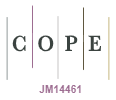John Dewey's contributions to the implementation of design thinking in education
DOI:
https://doi.org/10.5585/eccos.n71.25743Keywords:
active learning, experience theory, experimentationAbstract
The article emphasizes the importance of improving education as an essential pillar for progress and innovation in any society. To this end, it highlights John Dewey's theory as a fundamental guide for a pedagogical approach that prioritizes experience as a central source of learning. Dewey supported the view that knowledge is constructed through the individual's interaction with their surroundings, aligning with the principles of Design Thinking, which emerges as a transformative methodology that places the student at the center of the solution, actively involving them in the teaching and learning process. To achieve the proposed objective, a literature narrative was carried out, through the analysis of works that address Design Thinking and the Theory of Experience. From reflection, a range of possibilities opens up to compensate and improve pedagogical practices, creating learning experiences that are more aligned with the demands of the contemporary world. The article concludes by emphasizing the importance of understanding the concept of experience from John Dewey's perspective, highlighting it as an essential element for the learning process and as a starting point for analyzing potential transformations in the educational context.
Downloads
References
ALVES, Nilo Barlos e TOMETICH, Patrícia. Teoria da aprendizagem experencia de design thinking para criação de uma feira de sustentabilidade. RIGS: Revista Interdisciplinar de Gestão Social, Salvador, v 7, n. 3, p. 59-80, 2018. Disponível em:
https://periodicos.ufba.br/index.php/rigs/article/view/24724/17228 Acesso em: 18 de out. 2023.
BERBEL, Neusi Aparecida Navas. As metodologias ativas e a promoção da autonomia de estudantes. Semina: Ciências Sociais e Humanas, Londrina, v. 32, n. 1. 2011. Disponível em:
http://www.uel.br/revistas/uel/index.php/seminasoc/article/view/10326/10999.
Acesso em: 02 abr. 2022.
CAVALCANTI, Carolina Cavalcanti. Contribuições do design thinking para concepção de interfaces de Ambientes Virtuais de Aprendizagem centradas no ser humano. 2015. Tese (Doutorado em Educação). Faculdade de Educação. Universidade de São Paulo. São Paulo, 2015.
CAVALCANTI, Carolina Cavalcanti.; FILATRO, Andrea. Design thinking na educação presencial, a distância e corporativa. São Paulo: Saraiva, 2016.
CUNHA, Marcus Vinicius; MERCAU, Horácio Héctor. John Dewey: educação, democracia e coesão social. Educação, [S. l.], v. 46, n. 1, p. e115/ 1–20, 2021. Disponível em: https://periodicos.ufsm.br/reveducacao/article/view/44319. Acesso em: 26 out. 2023.
DEWEY, John. Democracia e educação: introdução à filosofia da educação. Tradução por Godofredo Rangel, Anísio Teixeira. 4. ed. São Paulo: Nacional, 1979.
DEWEY, John. Experiência e educação. Tradução por Renata Gaspar. Petrópolis: Vozes, 2023.
GONSALES, Priscila. Design thinking e a ritualização de boas práticas educativas. São Paulo: Instituto Educadigital, 2018.
GONSALES, Priscila. (org) Design thinking para educadores. São Paulo: Instituto Educadigital, 2014. Disponível em: https://educadigital.org.br/dtparaeducadores/ Acesso em 08 de maio de 2022.
MORÁN, José. Mudando a educação com metodologias ativas. In: SOUZA, C. A.: MORALES, O. E.T. Educação e Cidadania: aproximações jovens. Ponta Grossa: UEPG, 2015. Disponível em: http://www2.eca.usp.br/moran/wp-content/uploads/2013/12/mudando_moran.pdf.
Acesso em: 02 abr. 2022
PEREIRA, Eliana Alves; MARTINS, Jackeline Ribeiro; ALVES, Vilmar dos Santos; DELGADO, Evaldo Inácio. A contribuição de John Dewey para a educação. Revista Eletrônica de Educação, São Carlos, v. 3, n. 1, 2009. Disponível em:
https://web.archive.org/web/20190126012542id_/http://www.reveduc.ufscar.br/index.php/reveduc/article/viewFile/38/37 Acesso em: 19 de out. 2023.
PLACIDES, Fernando Mariano; COSTA, José Wilson da. John Dewey e a aprendizagem como experiência. Revista Apotheke, Florianópolis, v. 7, n. 2, 2021. Disponível em:
https://periodicos.udesc.br/index.php/apotheke/article/view/20411. Acesso em: 30 jul. 2023. DOI: 10.5965/24471267722021129
SANTOS, Josely Alves dos; OLIVEIRA, Guilherme Saramago de; PAIVA, Adriana Borges. O pensamento educacional de John Dewey. Cadernos da Fucamp, v.21, n.52, p.76-91 - 2022. Disponível em: https://revistas.fucamp.edu.br/index.php/cadernos/article/view/2818. Acesso em: 14 ago. 2023.
SOUSA, Sidinei de Oliveira; SOUZA, Jacqueline Pereira dos Santos. Taxonomia das metodologias ativas de ensino e de aprendizagem para promoção de prática inovadoras na educação. In: Raimunda Abou Gebran; Carmen Lúcia Dias. (Org.). Práticas Educativas e Inovação. 1ed.Curitiba: Appris, 2019, v. 1, p. 131-160.
SOUZA, Helton Adriano; GALTER, Maria Inalva; VIEIRA, Jorge Antonio. A experiência educativa na perspectiva de John dewey (1859-1952). Brazilian Journal of Development, Curitiba, v. 6, n.6, p. 36965-36998. Disponível em:
file:///C:/Users/jgali/Downloads/admin,+BJD+art+292+Helton.pdf. Acesso em: 19 de out. 2023.
VALENTE, José Armando. Blended learning e as mudanças no ensino superior: a proposta da sala de aula invertida. Educar em Revista, Curitiba, ed. esp. n. 4, p. 79-97, 2014. Disponível em: https://www.scielo.br/j/er/a/GLd4P7sVN8McLBcbdQVyZyG/. Acesso em: 17 out. 2022.
Downloads
Published
How to Cite
Issue
Section
License
Copyright (c) 2024 Josélia Galiciano Pedro, Sidinei de Oliveira Sousa

This work is licensed under a Creative Commons Attribution-NonCommercial-ShareAlike 4.0 International License.
- Abstract 109
- pdf (Português (Brasil)) 69






